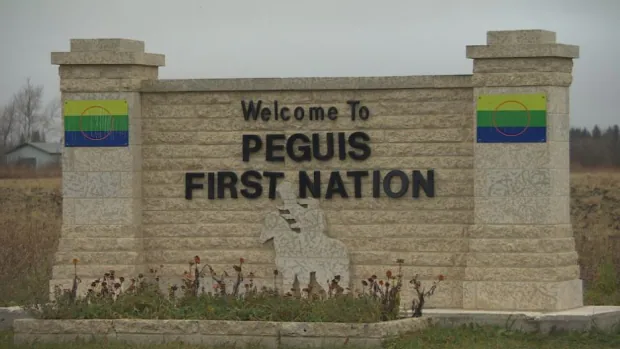Peguis First Nation, located 190 kilometres north of Winnipeg, claims that it was not consulted about amendments to the province’s Wildlife Act that “adversely affect its treaty right to hunt.”
Peguis First Nation in Manitoba has launched a lawsuit against the provincial government alleging that amendments to the Wildlife Act concerning night hunting infringe on its members’ treaty right to hunt.
The First Nation community, located 190 kilometres north of Winnipeg, claims that after the legislation was introduced, Peguis “repeatedly” told the province of its concerns that the amendments “would adversely affect its treaty right to hunt” and asked that it be consulted, but that didn’t happen, the statement of claim says.
The amendments to the Wildlife Act were introduced by the Progressive Conservative government in May 2018, and the night hunting provisions became law in October 2020. The province told the First Nation that the amendments were needed “to address safety issues associated with night hunting,” the lawsuit says.
The statement of claim, which was filed in Manitoba’s Court of Queen’s Bench on Feb. 22, says Peguis’s ancestors entered into Treaty 1 with the Crown in 1871 and that members’ treaty right to hunt is recognized in Section 35 of the Constitution.
“There’s a guaranteed constitutional right to hunt,” said Bruce McIvor, Peguis’s lawyer, a partner with First Peoples Law in Vancouver.
“The law is very clear that Indigenous people have to be assured that they can use their preferred means for hunting. And for a lot of Indigenous people, and this can vary … their preferred means is to hunt at night.”

First Nation says it wasn’t consulted
Peguis wants the court to declare that its treaty right to hunt has been infringed and to issue an order that the night hunting provisions “are of no force and effect.” It also wants a declaration that the government “breached the honour of the Crown” by enacting the provisions “without consulting and accommodating” the First Nation.
“Peguis members have always hunted at night for food and ceremonial purposes,” the lawsuit states. “Hunting at night continues to be the preferred means by which Peguis members exercise their treaty right to hunt.”
The need for night hunting has only increased over the course of the COVID-19 pandemic, which has brought food insecurity and economic challenges to the community, the statement of claim says.
None of the allegations have been proven in court.
The legislation includes a general prohibition for night hunting in Manitoba, subject to exceptions, the lawsuit says. An Indigenous person in northern Manitoba can hunt at night if they’re exercising a treaty right and do not discharge a firearm within three kilometres of buildings, roads or farms. In southern Manitoba, an Indigenous person can hunt at night if they hold a valid permit, subject to conditions.
4 Peguis members issued permits
The lawsuit comes after four Peguis members were issued permits to hunt at night in November 2020. The permits were not valid on private land, the holder had to ensure that the approved Crown lands were unoccupied and a gun could not be discharged within three kilometres of buildings, roads or farms.
“The night hunting provisions interfere with Peguis members’ ability to exercise their treaty right to hunt using their preferred method of hunting at night. As a consequence of the night hunting provisions, Peguis members face increased challenges in maintaining their cultural and spiritual practices and in providing sustenance for their families,” the lawsuit claims.
In a Feb. 23 news release, Chief Glenn Hudson of Peguis First Nation stated that the changes to the law are not about safety.
“If the province was concerned about keeping people safe, they should have talked to us first. We’ve been hunting safely at night for generations,” he said. “Instead, Manitoba went ahead and amended the laws without even consulting us.”
McIvor said that “it’s important to keep in mind” that Indigenous people are not “so-called sports hunters, they’re hunting for food. And they do that in the most efficient way possible — and for a lot of treaty rights holders, that means hunting at night.”
Spokespersons for the province’s Department of Natural Resources and Northern Development, as well as the justice minister, told CBC News that they could not comment on the lawsuit because it’s before the courts. The province has 20 days to file a statement of defence.

